Losing My Religion, Part I
Baby bird belief, the feeling of an unsafe household, strengths out of balance, and a hopeful half-life.
As I have read the Gospels over the years, the belief has grown in me that Christ did not come to found an organized religion but came instead to found an unorganized one. He seems to have come to carry religion out of the temples into the fields and sheep pastures, onto the roadsides and the banks of the rivers, into the houses of sinners and publicans, into the town and the wilderness, toward the membership of all that is here. Well, you can read and see what you think.
— Wendell Berry, Jayber Crow
Baby bird belief
As a child in an evangelical church, my surroundings felt secure — and they were primarily. I held that sense of security like a baby bird takes a worm, so when life circumstances led me to new churches (and at times back to a former church) I began to experience a sinister side to my blind trust of leadership. I mean, Hebrews 13:17 says they keep watch over my soul; why wouldn’t I trust them?
I followed protocols, gladly enrolled in multiple serving opportunities, and attended every gathering. In the beginning it gave me life. I found joy in worshipping and serving the Lord alongside brothers and sisters in the faith whom I loved. Don’t all meaningful pursuits start with love?
Well, somewhere the focus shifted. Trust had ruptured one too many times. The sense of security vanished, civility replaced intimacy. No church felt safe, even ones that once felt like home. My fundamental understanding of being a member of a church body evaporated through the years and I woke up one day quoting Sam Baldwin:
I’m gonna get out of bed every morning … breathe in and out all day. Then after a while I won’t have to remind myself to get out of bed every morning and breathe in and out … and then after a while I won’t have to think about how I had it great and perfect for a while.
Tom Hanks, Sleepless in Seattle
I view my story as one of many. My intent is not to fuel the deconstruction narrative or put all pastors on blast. On the contrary, I have encountered many godly leaders who increased my faith in God and deeply enriched my life. The Lord continues to work healing redemption in the tender, wounded places of my soul. With help from God’s Spirit, I’ve made it through the petrified wallowing stage and now I’m interested in discovering what’s next.
The feeling of an unsafe household
In a podcast interview with Trevor Noah, he talks about living in a home with domestic violence. “[As a child] … your parents are like ‘the President’ in a weird way, the most powerful beings you know. And if you ever have the terrible fortune of seeing [your mother] being in a position where she’s being violently harmed, it rocks your fundamental understanding of what the world is.” He goes on to say children who witness abusive behavior aren’t thinking in terms of, “‘Well, nothing physical happened here,’ and ‘that was only words,’ and ‘this was because of stress,’ … No. We’re just experiencing an unsafe environment.” Essentially, the mistreatment seeps in over time, shaping how we view the world and those charged to protect.
The part that resonates most is the position of power. Translating that to spiritual caretakers helps interpret my willing submission to church leadership. I often heard the exhortation for believers to be confident in and obey leaders, showing them respect in love because they labor to teach the body of Christ (Hebrews 13:17; 1 Thessalonians 5:12-13).
I wish I’d heard more about praying for my leaders. Growing up, I never got the sense they needed anything from me.
I remember the first time I understood the book of Jude, how my breathing shallowed as I connected the dots and saw some pastors of my youth and early adult years in a new light. They were “shepherds who only look after themselves.” My soul cried out against the way their greedy leadership set my life and my husband’s life and belief on a painful path. We were young, full of hope and devotion.
The enduring effects of poor shepherding is grievous and perplexing.
Strengths out of balance
I reluctantly stopped feeling at home in church a couple years ago. Last fall, the lyrics of a song put words to my wretched vibes.
After listening I thought, “It’s about God.”
I saw the “people who cannot speak without smiling” as wearing masks to hide their sorrow or cruelty — ultimately both are dishonest. They would try to take me from the Father’s hand, but they could only try. “The murmur of the land — love’s marching band” brought the hymn “Onward, Christian Soldier” to mind along with the well-meaning, though often insular church people who mistakenly wield God like a weapon instead of a Savior, a tactic instead of the answer. But I sing to God from the depths of a belief He planted in me “when I was young, buried for a night like this.”
I later read the song is actually about wanting to give up, be done with fighting. Though I’m grateful for my analysis, I understand the artist’s meaning on a level I’d rather not be familiar with.
I also see I’ve become a person who cannot be in public without smiling. When I commiserated this to a friend, she encouraged me that what I see as negative is just a strength out of balance. A former colleague called it my “resting encourager face,” so it could be worse I suppose. I could be walking around with RBF.
Instead, my unbalanced REF is part of what makes going to church so challenging. I want to be real, to be known, to learn and share. But that’s not really how it works. If it’s a place you’ve attended a long time, changing is difficult because you’re known a certain way. Or if you’re in a new place, no one knows your story and it’s like starting from square one with no one to vouch for you. I almost wish I could transfer my memories to people with one touch, but that’s just as creepy as it is in New Moon.
Ideally, the church is a place to let your guard down, fall apart in a safe and loving environment, to encounter patience. Preferably, a home where the people around you have godly discernment to know the time for comfort, warning, encouragement, teaching, and spurring on. I’ve experienced churches where these practices are a reality. So I know they exist. Sadly, they are 600 and 1100 miles away. Not ideal for a Sunday commute.
Half-life but hopeful
I’ve heard “the church is a hospital for sinners” repeatedly, and the flip side is equally lodged deep within: wounded saints need to keep it together because the rest of us are laboring over lost souls. You’re too old for this. You know better. Figure it out and get back to work.
Spreading the gospel and bearing one another’s burdens are both necessary and commanded (Matthew 28:19-20; Galatians 6:2). Building up the downtrodden seems overshadowed by the prominence of evangelism. I like to think Jesus had this conundrum in mind when He said, “I am with you always, to the end of the age” (Matthew 28:20), and “In this world you will have trouble. But take heart; I have overcome the world” (John 16:33).
I want to skip over this part of the unknown and be settled. There are plenty of uncomfortable hardships in life, but having a trusted community — “the saints in the land, in whom is all my delight” — makes the trouble livable.1 Consequently, this place I’m in feels a bit like a half-life. I know it’s just a feeling, and I pray God will remove the suspicious voices from my head that engage whenever I’m in a church setting. Corporate worship used to foster joyful connection to the Lord and His people. Nowadays I feel flat, disengaged, my eyes darting to the exit wondering if I can make it to the end.
…for our captors there asked us for songs, and our tormentors, for rejoicing: “Sing us one of the songs of Zion.” How can we sing the LORD’s song on foreign soil?
Psalm 137:3-4, CSB
Why do those verses evoke emotion in me? Sounds silly. Or crazy. I don’t know the people leading worship enough to make any conclusions, but I’m hopeful they are faithful, genuine believers. They’re oblivious to the fight in my mind — not wanting to give in to feelings yet fully aware of the storms that incited the riot. I echo a friend’s recent sardonic sentiment, “It’s a lot … being alive.”
Like Elisabeth Elliot, I pray God will deliver me from making a career out of my troubles so I can be free to serve Him with a willing spirit; however that looks, wherever I am.2
To be continued…
Thank you for joining me here, friends. The abundance of thoughts and questions are too extensive for one newsletter, so I’m breaking it into parts. I welcome your own thoughts and questions. Renovation is more enjoyable and productive with community.
Bi-weekly extras
Music, food, literature, and a moment.
The tunes
I put extra heart into this playlist. The songs encapsulate a lyrical journey of innocence, bewilderment, hurt, disillusionment, grief, and hope. Listen in order from the viewpoint of a church member.
Cover photo by me, October 2020. My friend Heather aptly calls this place my “heart church.”
The menu
We’re hosting Ethan’s bestie right now, so I’m cooking a lot. Two 17-year-old boys. In addition to the copious amounts of food, there’s a lot of silliness and laughter and I’m loving every minute. ~ Logan eats yogurt with granola daily, so I made this batch of Cranberry Orange Granola from Cookie and Kate. WOW. If those flavors are your jam, you won’t regret it. I used the zest of two oranges because they looked a bit small, and I doubled the cinnamon. Delicious.
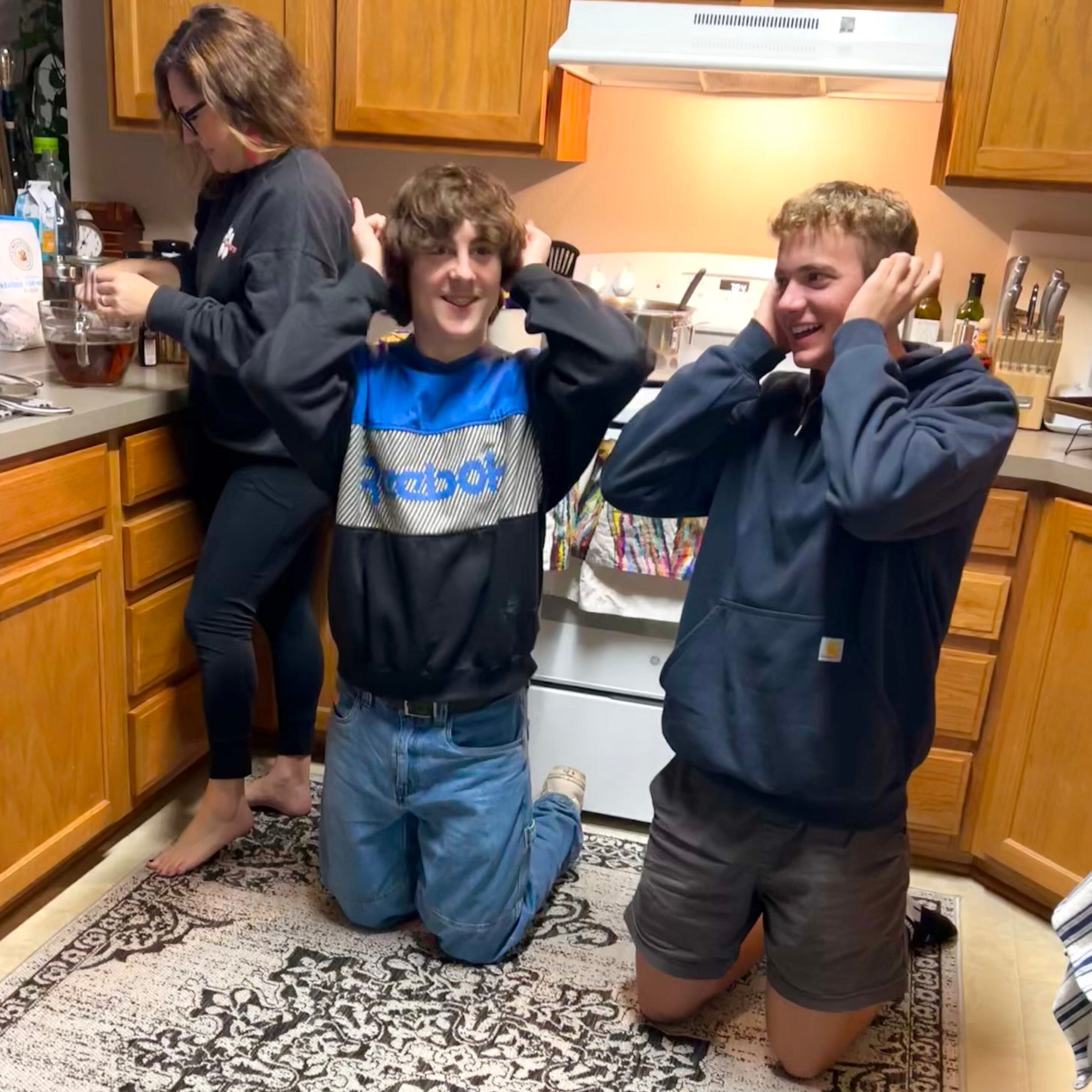
The read
Continuing the Trevor Noah theme, I genuinely enjoyed his newest book, Into the Uncut Grass. In the same vein as The Boy, the Mole, the Fox and the Horse by Charlie Mackesy, Noah’s book can be enjoyed and appreciated by both children and adults alike. He champions the imagination in all of us, telling the classic tale of wandering from home in a burst of defiance only to encounter beauty and obstacles that lead straight back home, enriched and grateful. In that way, the story reminds me of the Christian life.
The moment
Sean spontaneously suggested we go to a renaissance faire. He wore his kilt. I found a small vest of his from the 90s that barely buttoned enough, which rendered it the closest thing to a corset in my closet. We drove 30 minutes to the exit of the venue, and sat for another 30 minutes in a line of traffic just to park, but we had some quality conversation. When we got to the ticket window to buy our tickets, a generous man approached us and gave us each a free ticket!
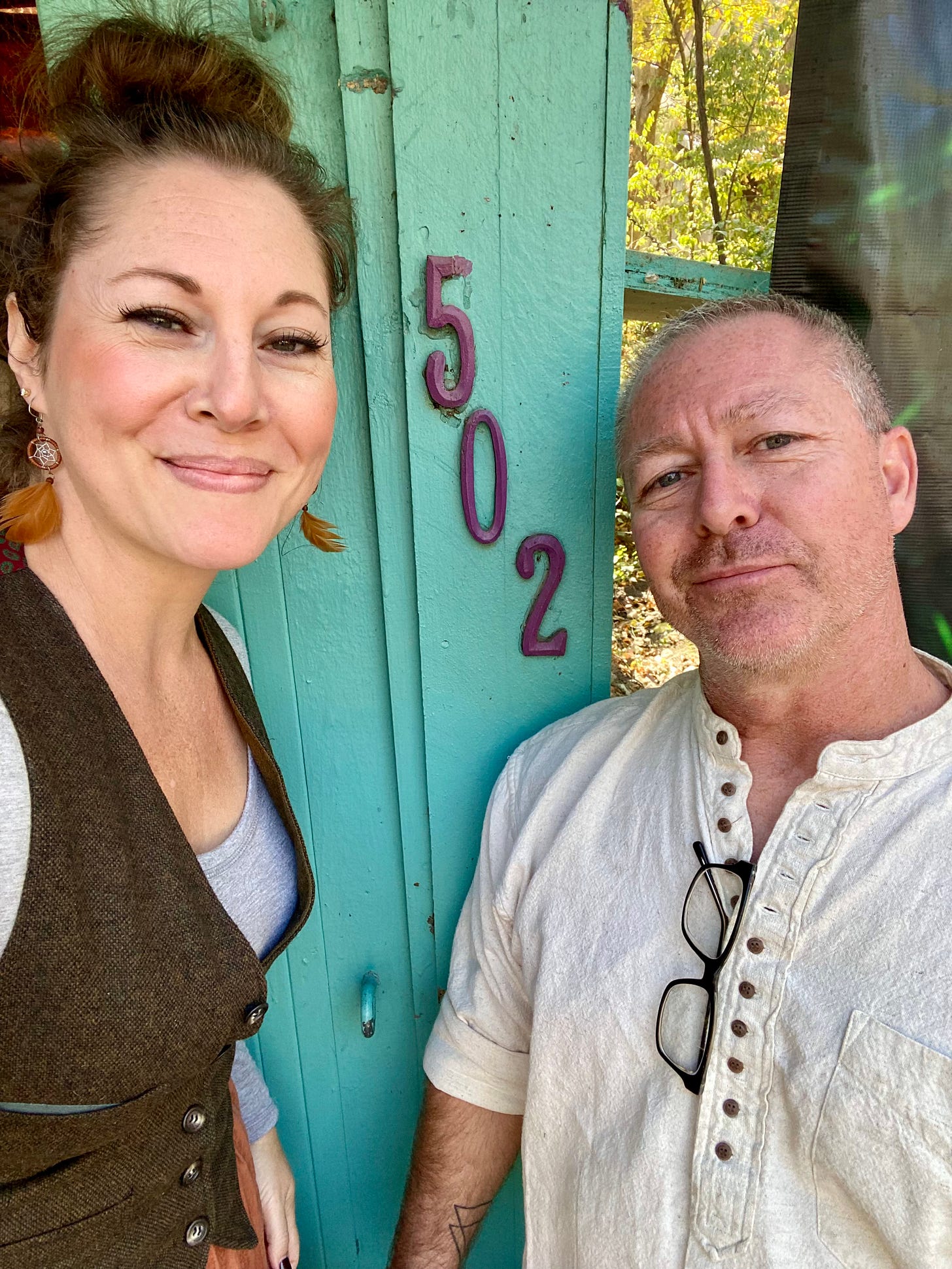
Be well, friends.
Psalm 16:3.
Suffering Is Never for Nothing by Elisabeth Elliot.




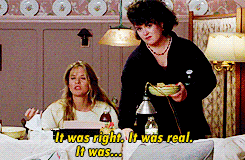
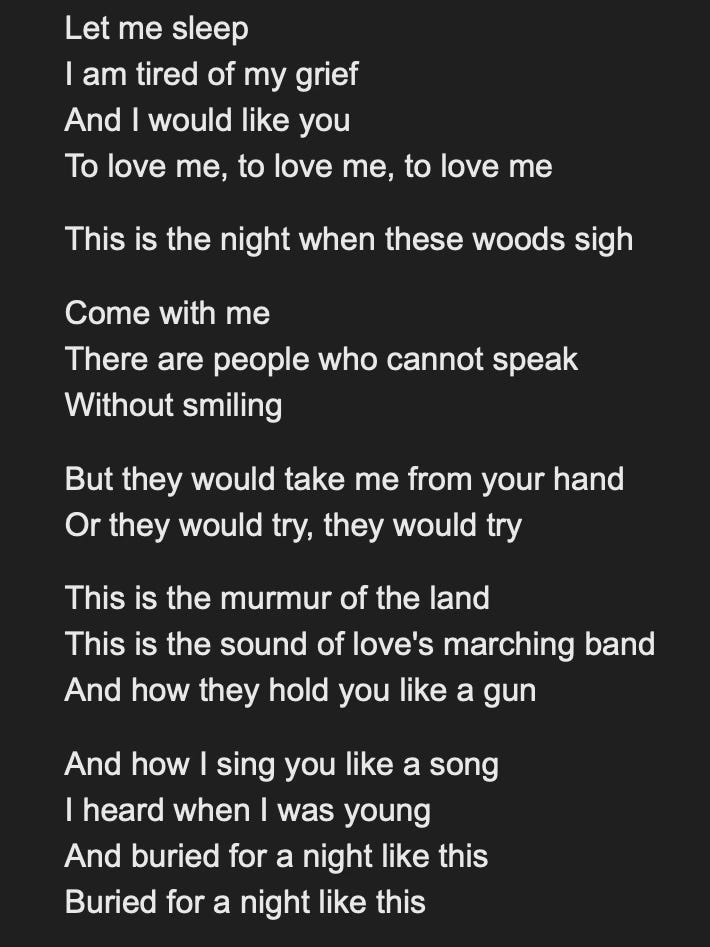
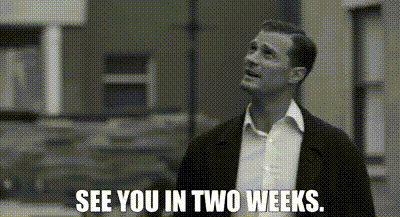
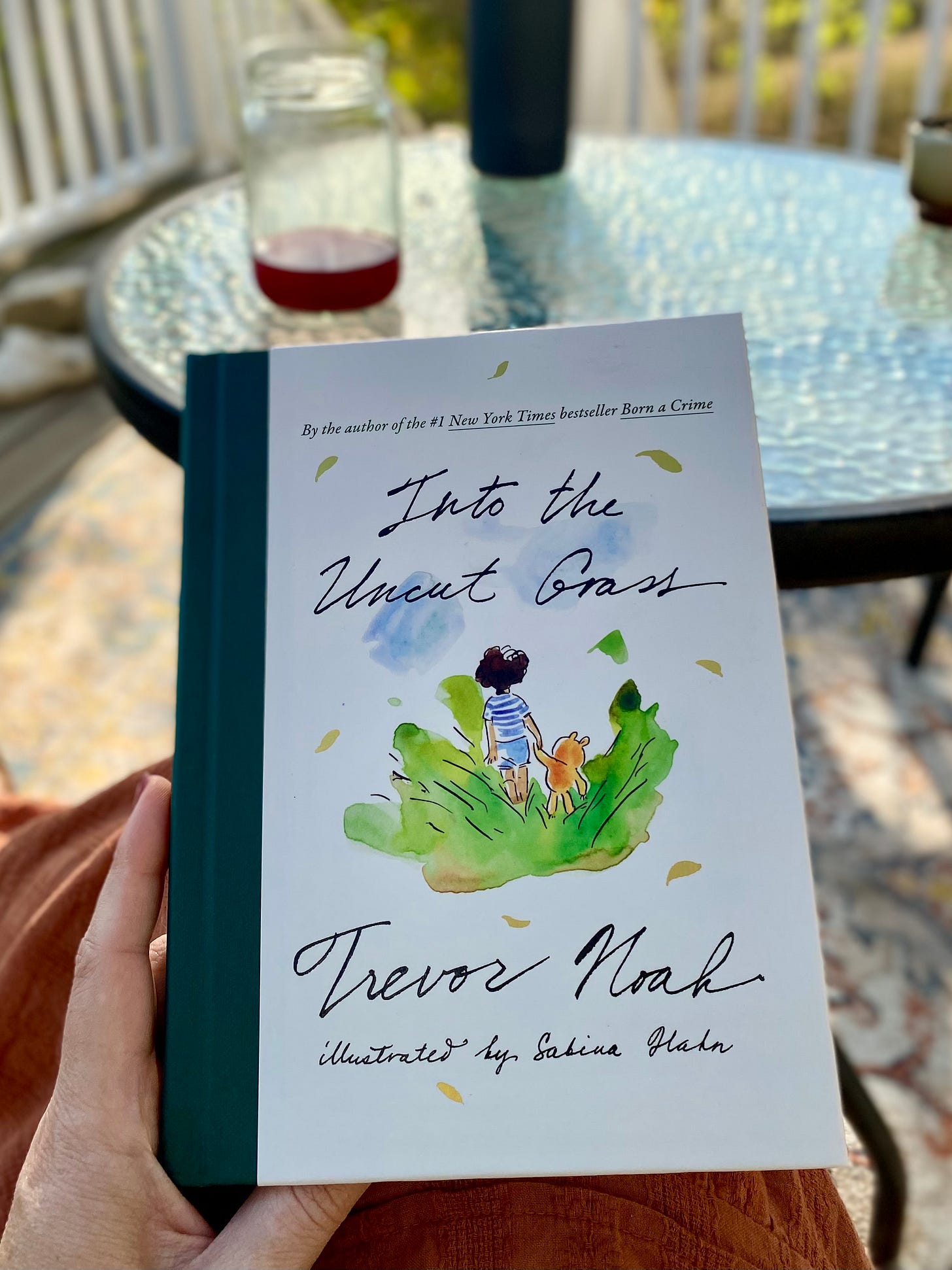
I would also like to sign up for the “I want to skip over this part of the unknown and be settled.” Thank you. 🩷
or you grew... ;)